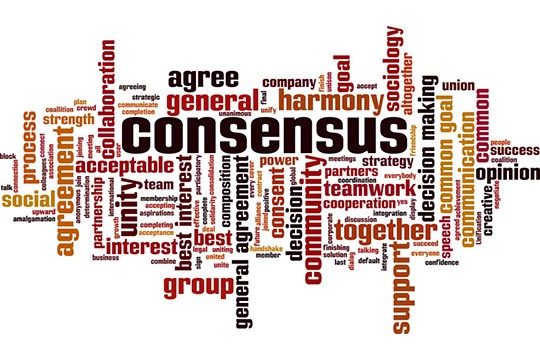Pic.: The Heartland Institute
The EU will discuss options on how to act more swiftly on foreign policy matters, an area in which most decisions need unanimity, which has seen Hungary oppose many actions in favor of Ukraine and against Russia in recent years.
A group of a dozen countries has looked into unexplored legal possibilities to proceed by qualified majority instead of unanimity, according to a document seen by Bloomberg that was circulated to member states ahead of an informal gathering of EU foreign ministers in Copenhagen.
Mario Draghi, a former Italian prime minister and president of the European Central Bank, advocated for the expanded use of qualified majority decision-making in his influential report on the future of European competitiveness published in 2024. That’s been echoed by major voices including current ECB President Christine Lagarde.
Making the change would allow faster and more decisive action in the context of increased geopolitical competition, and avoid individual member states being able to block decisions that have wide support within the 27-member bloc.
Hungary has consistently opposed initiatives on Ukraine — ranging from the disbursement of funds to the country’s EU accession process – prompting intense diplomatic rows and negotiations to sway them on matters such as the renewal of sanctions against Russia.
Member states have expressed increased impatience and irritation at Budapest’s actions. Hungary on Friday refused to sign a statement condemning Russian strikes on Ukraine this week that killed 25 people and damaged the EU mission in Kyiv.
The EU’s top diplomat Kaja Kallas on Friday called out Hungary’s continued blocking of a €6.6 billion ($7.1 billion) fund meant to reimburse member states for equipment donated to Ukraine. Once the money is freed up, it could be used to buy US equipment for Ukraine under the recently devised initiative coordinated by NATO, she said.
“All the countries today were raising this issue of unblocking. You do not have to be part of it, but let others then do it,” Kallas said, adding that Hungary had rejected various “ways out” that the EU had offered.
The document circulated to countries lays out existing legal options that could be leveraged, such as getting the Council to approve certain areas in which most decisions could then be made by qualified majority.
It also lays out the various “safety net” possibilities that countries would retain, and stresses that consensus remains the bloc’s backbone.
read more in our Telegram-channel https://t.me/The_International_Affairs

 11:27 31.08.2025 •
11:27 31.08.2025 •























